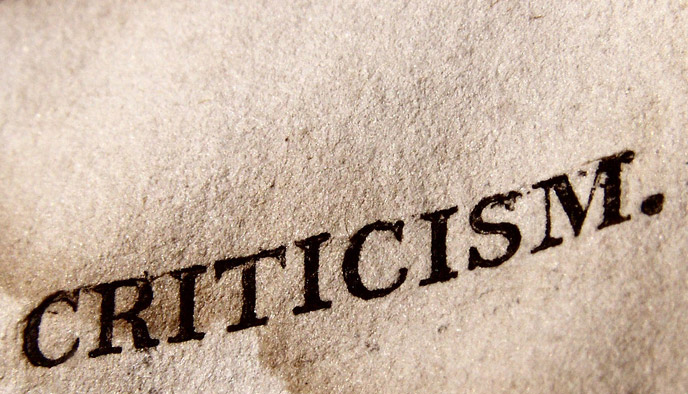In 2010, New York Times movie critic A.O. Scott published an essay about the state of criticism. How did he see its future? “Miserable, and full of possibility.”
The first half of that answer might be unique to the U.S., or at least to the English-speaking world. Criticism, and the level of intellectual discourse around theater and around art more generally, is arguably more robust in Germany than in America. (Or maybe that’s just my naive, starry-eyed impression after a couple months in Berlin.)
But I’m more interested in the second half of Scott’s prognosis, which still feels true five years on. Why is criticism’s future so full of possibility? Beyond the old news of citizen journalists taking to Twitter to air their opinions, I think there’s great freedom for critics to break free from traditional review formats. Reviews can be intimate. They can be eclectic and omnivorous and irreverent in the references they make and the connections they draw—politics are fair game, but so are Internet memes. They can be 140 characters, yes, but they can also take the form of a personal essay or a cartoon or a conversation or a pie chart.
And yet. Maybe I’m a premature curmudgeon, or a digital native revolting against the forces around me, but I still like narrative prose and proper punctuation and paragraph breaks, even after spending three years churning out fairly traditional reviews (for print!) on a near-weekly basis. I think writers can get too caught up in the artistry of our own words, or in the cutesiness of the format. We can forget that amid all this creative possibility, if we want to be an important part of an important conversation, our criticism must transcend cleverness. We don’t want to bore readers, but we can’t sacrifice real critical engagement just to impress people with our wordplay.
A former editor of mine always talked about how criticism is a chance to provide readers with a unique lens through which to experience something—after reading your review, they’ll never see it the same way again. We don’t determine experiences, but we tint them. And at its best, our writing will not only be valuable to those who’ve seen or will see a particular show, but also to those who’ll never come anywhere near the theater—but who, whether out of genuine curiosity or sheer confusion (bless them all), are still reading our words.
Exberliner is partner of the Theatertreffen-Blog.
